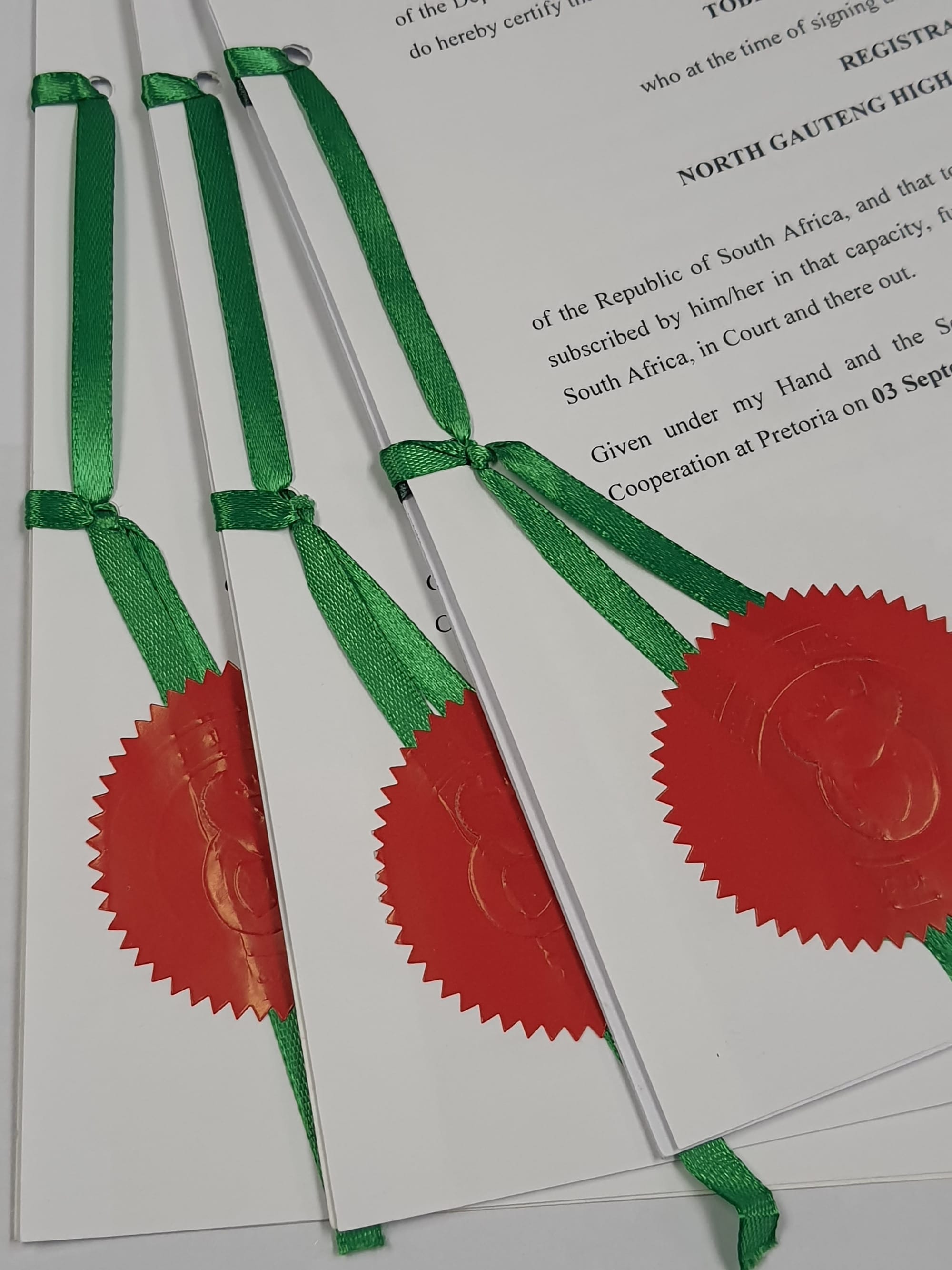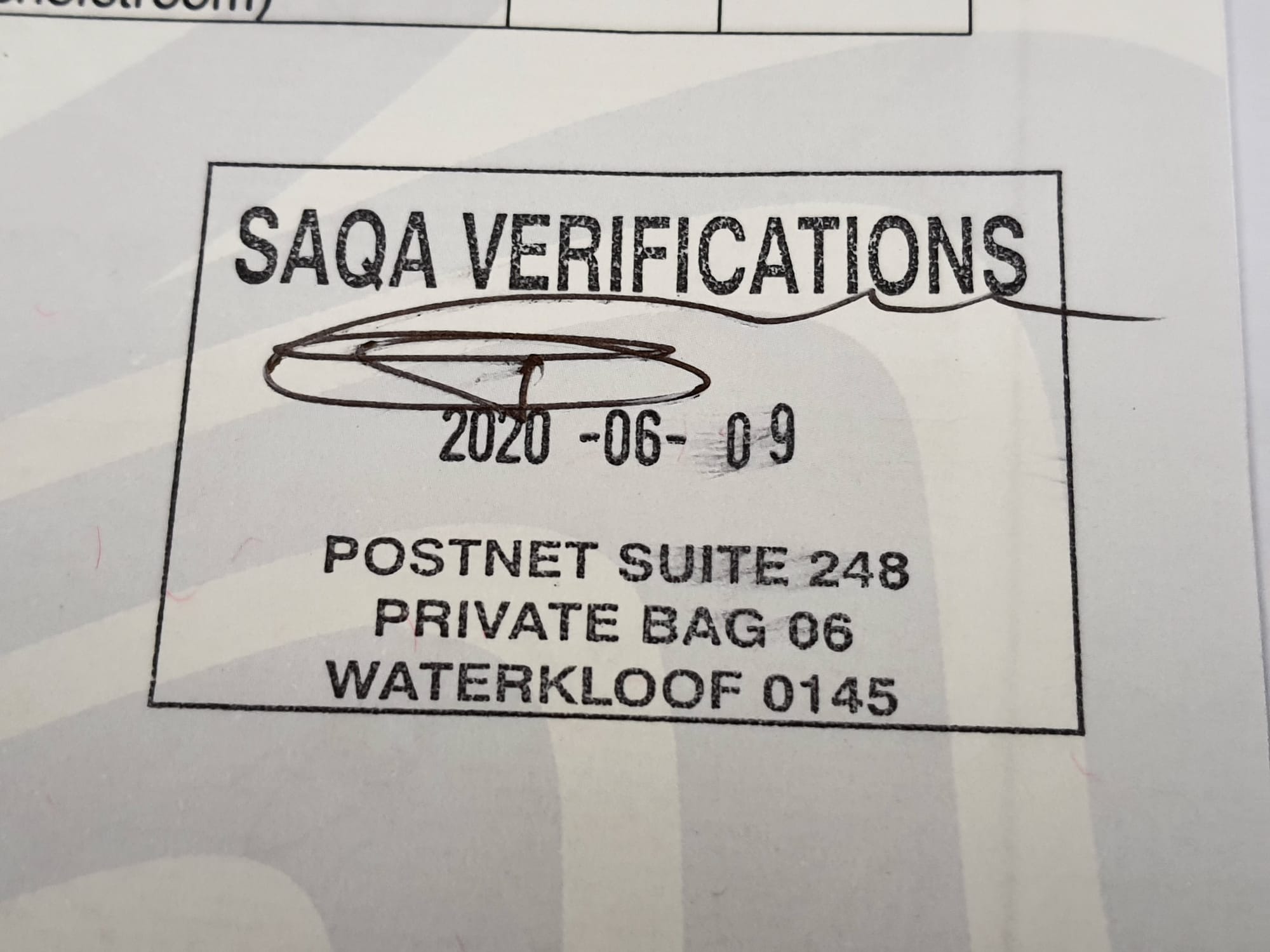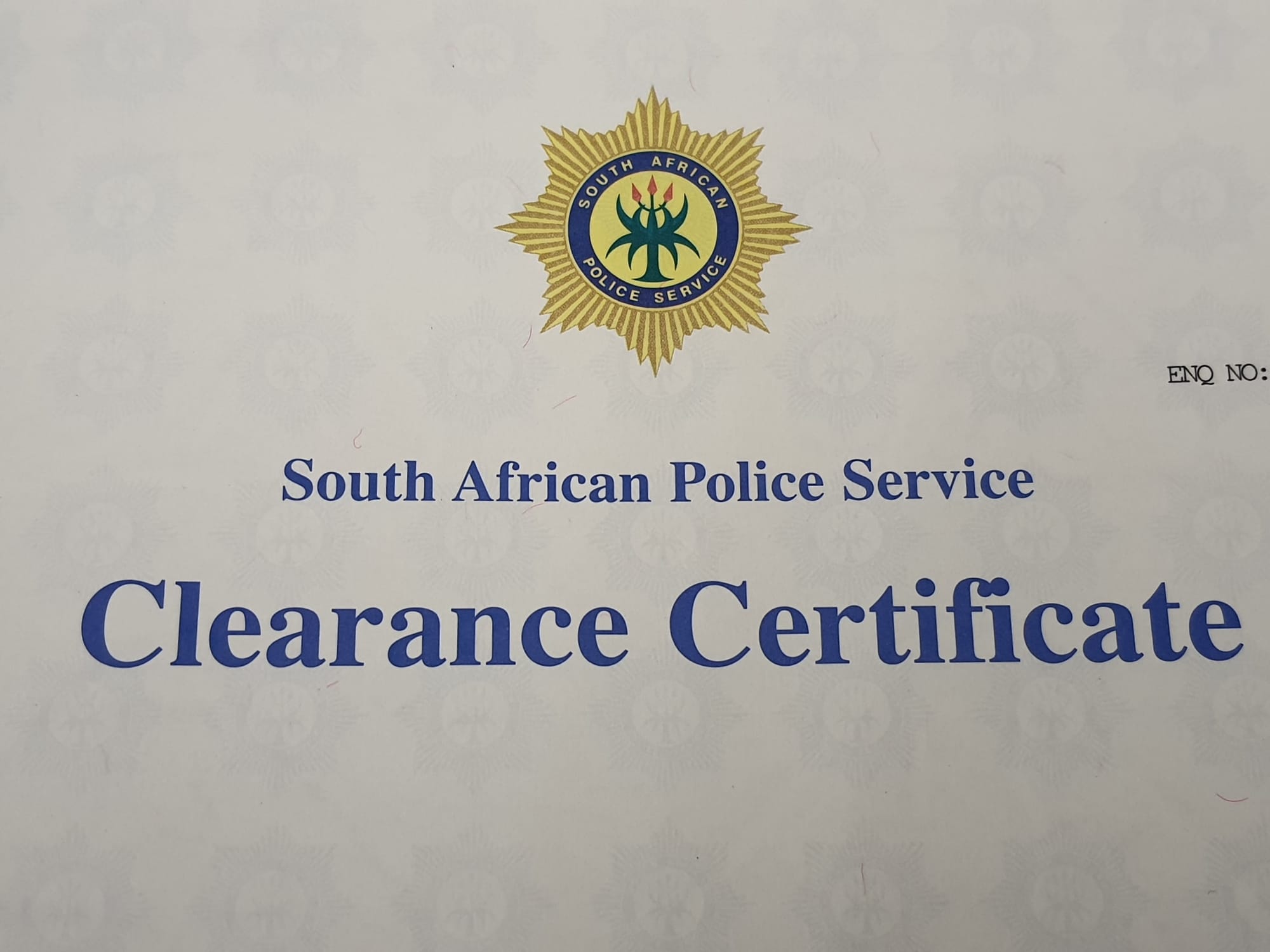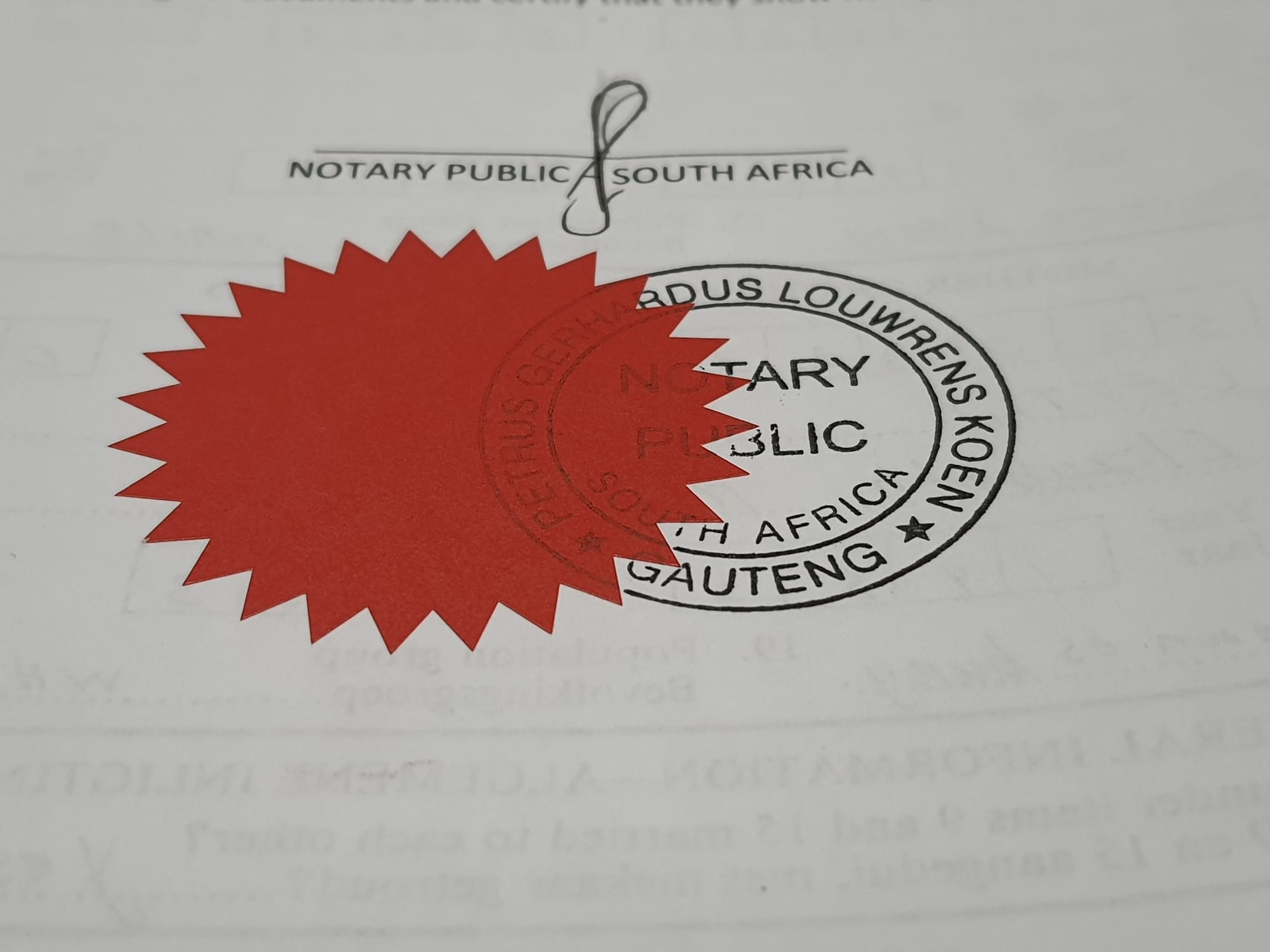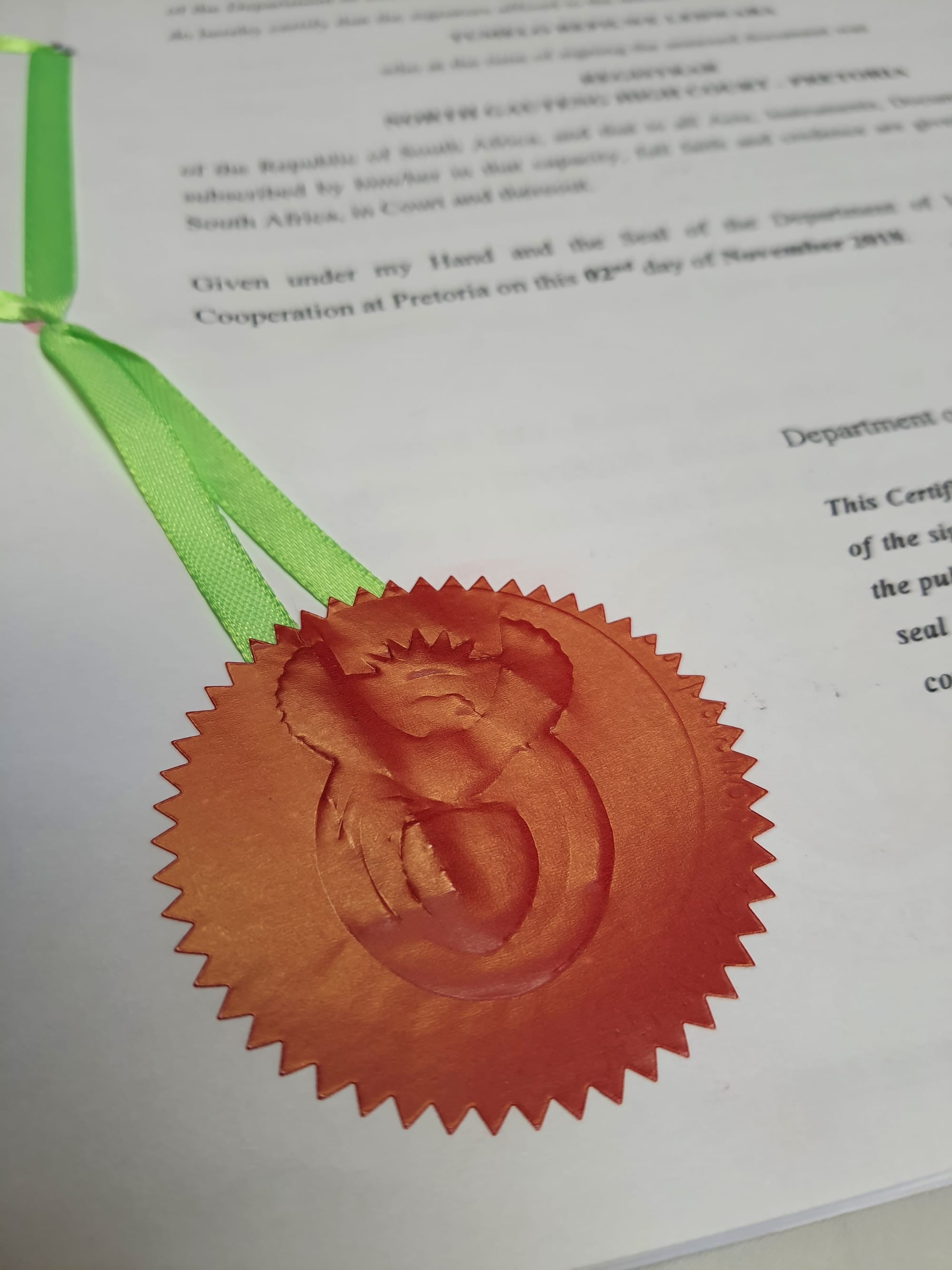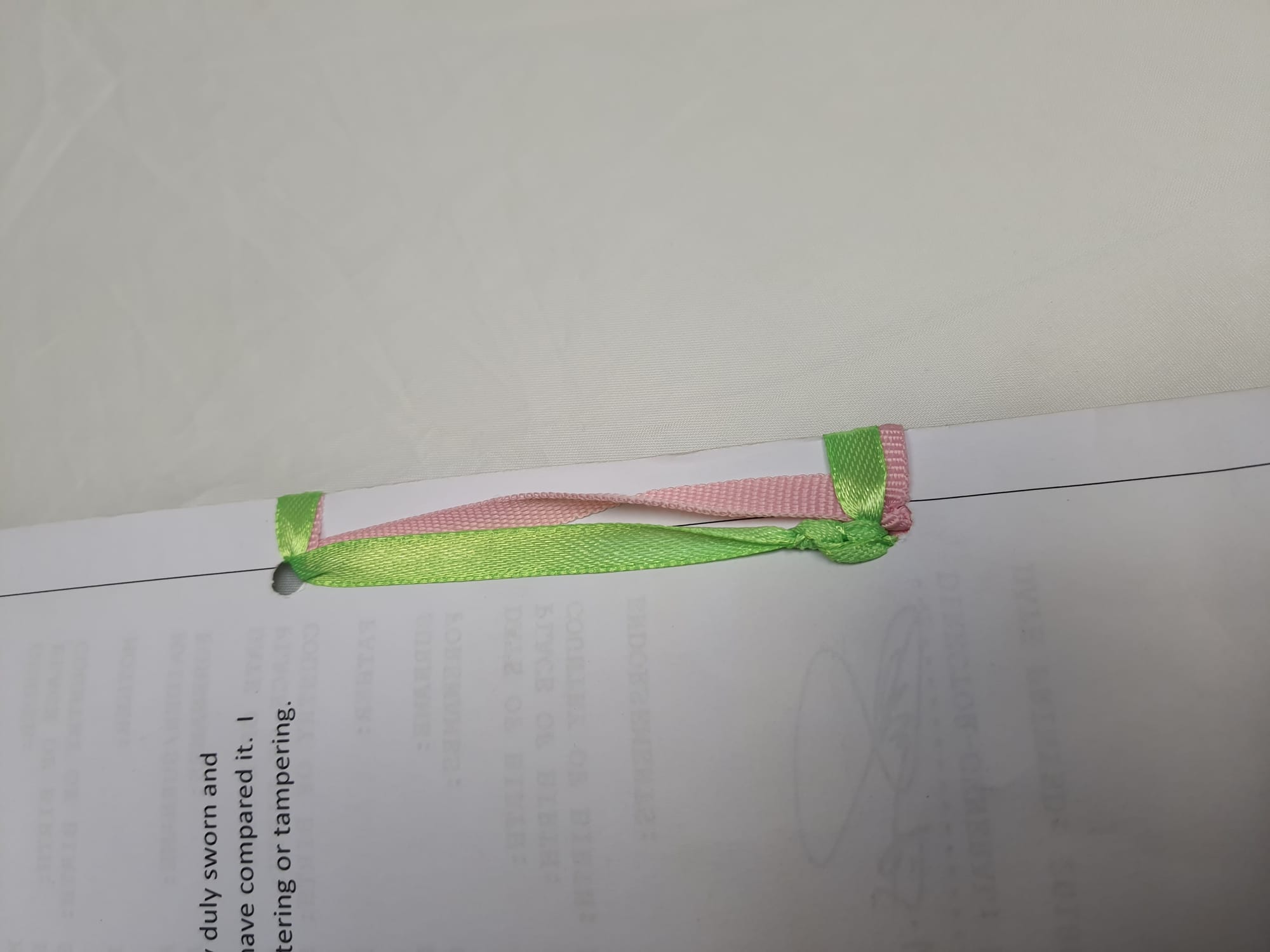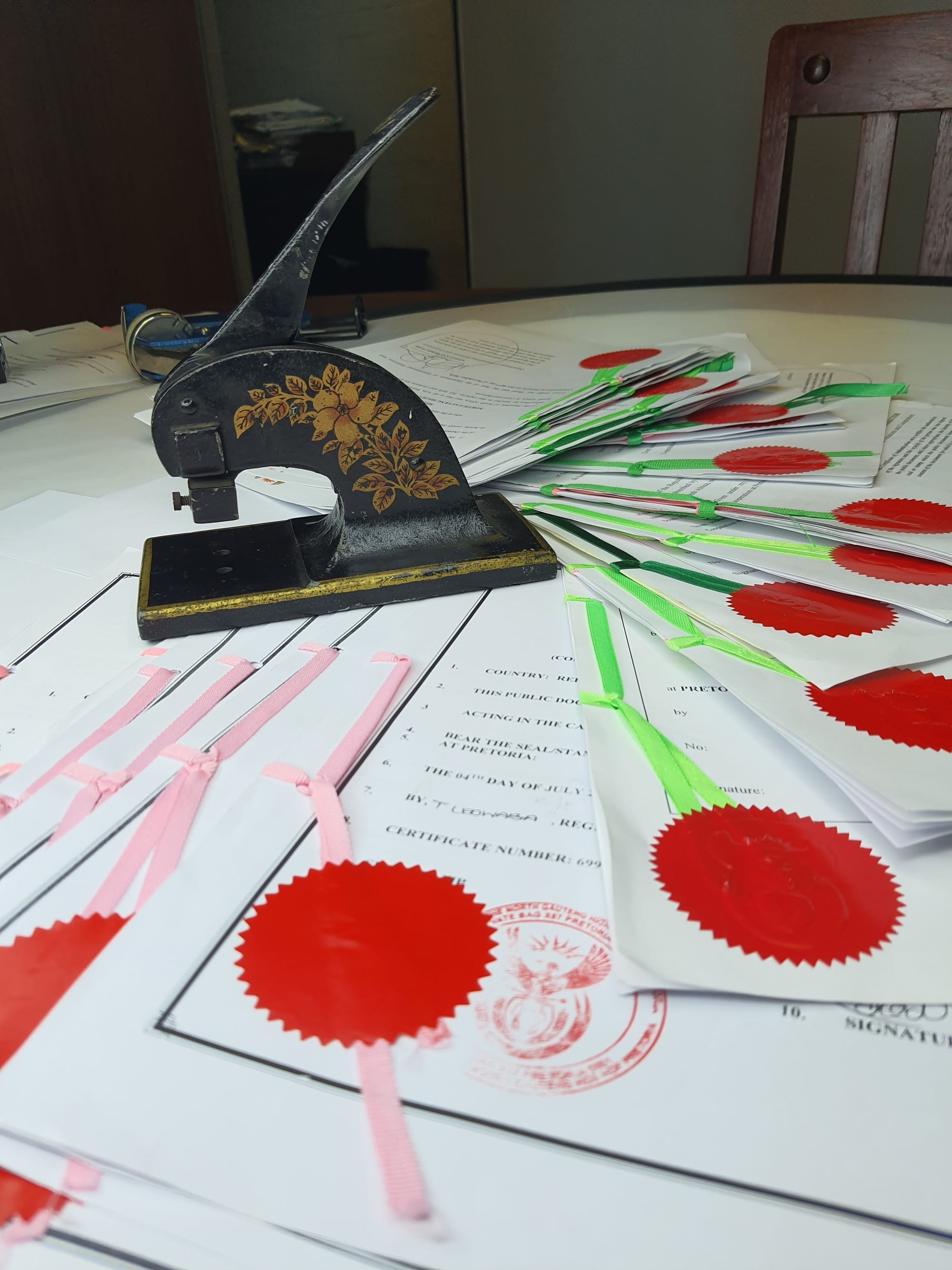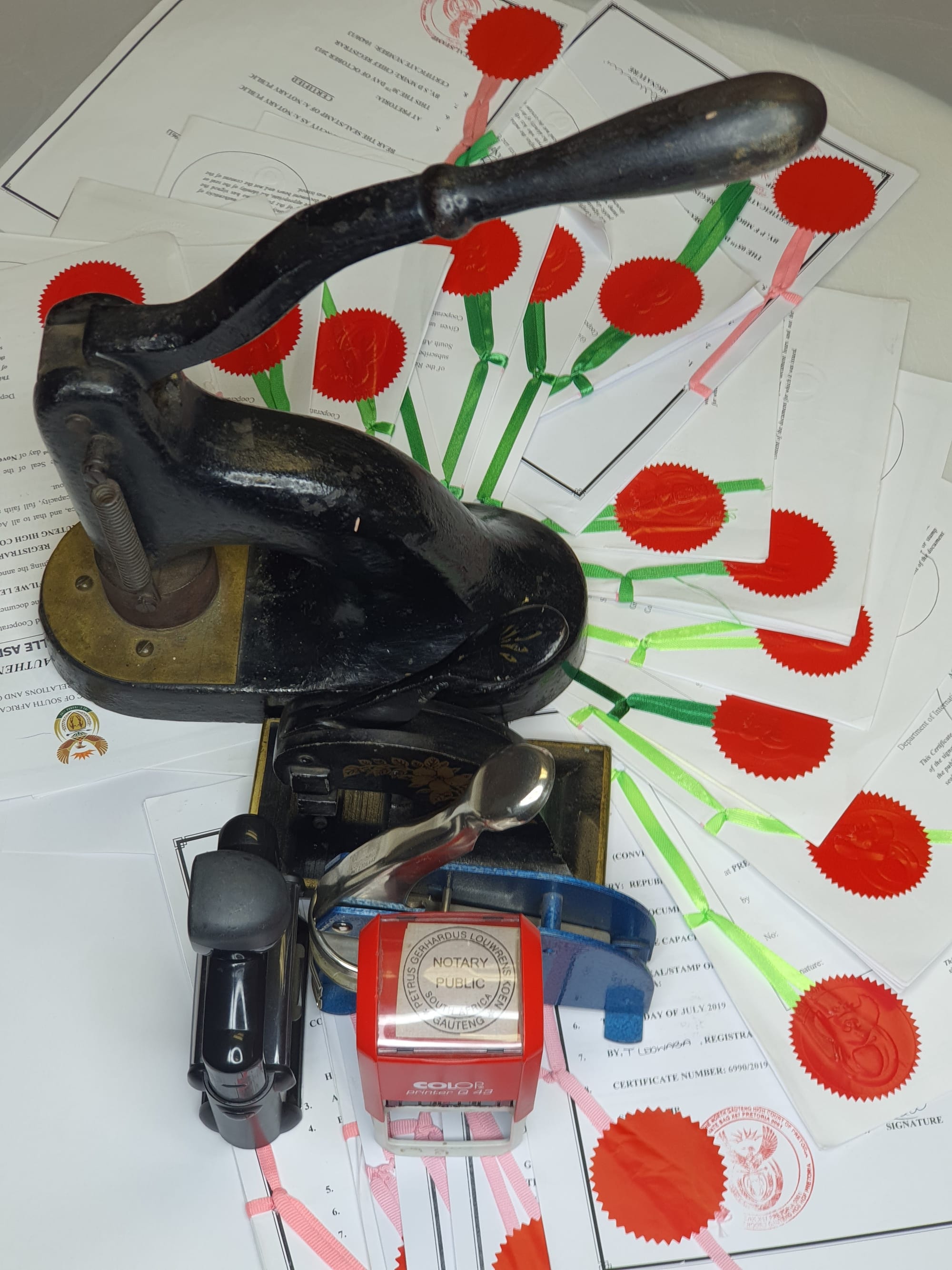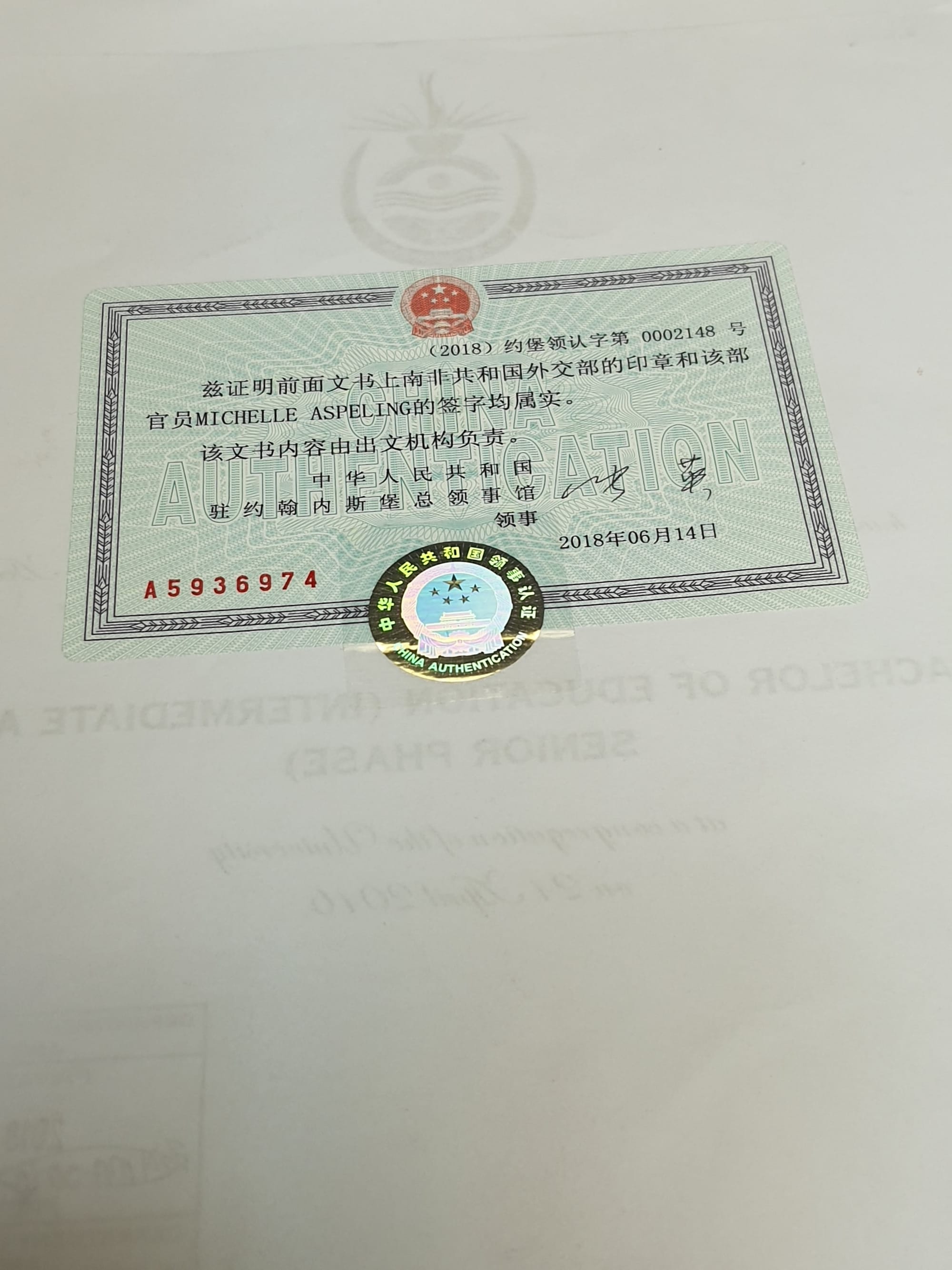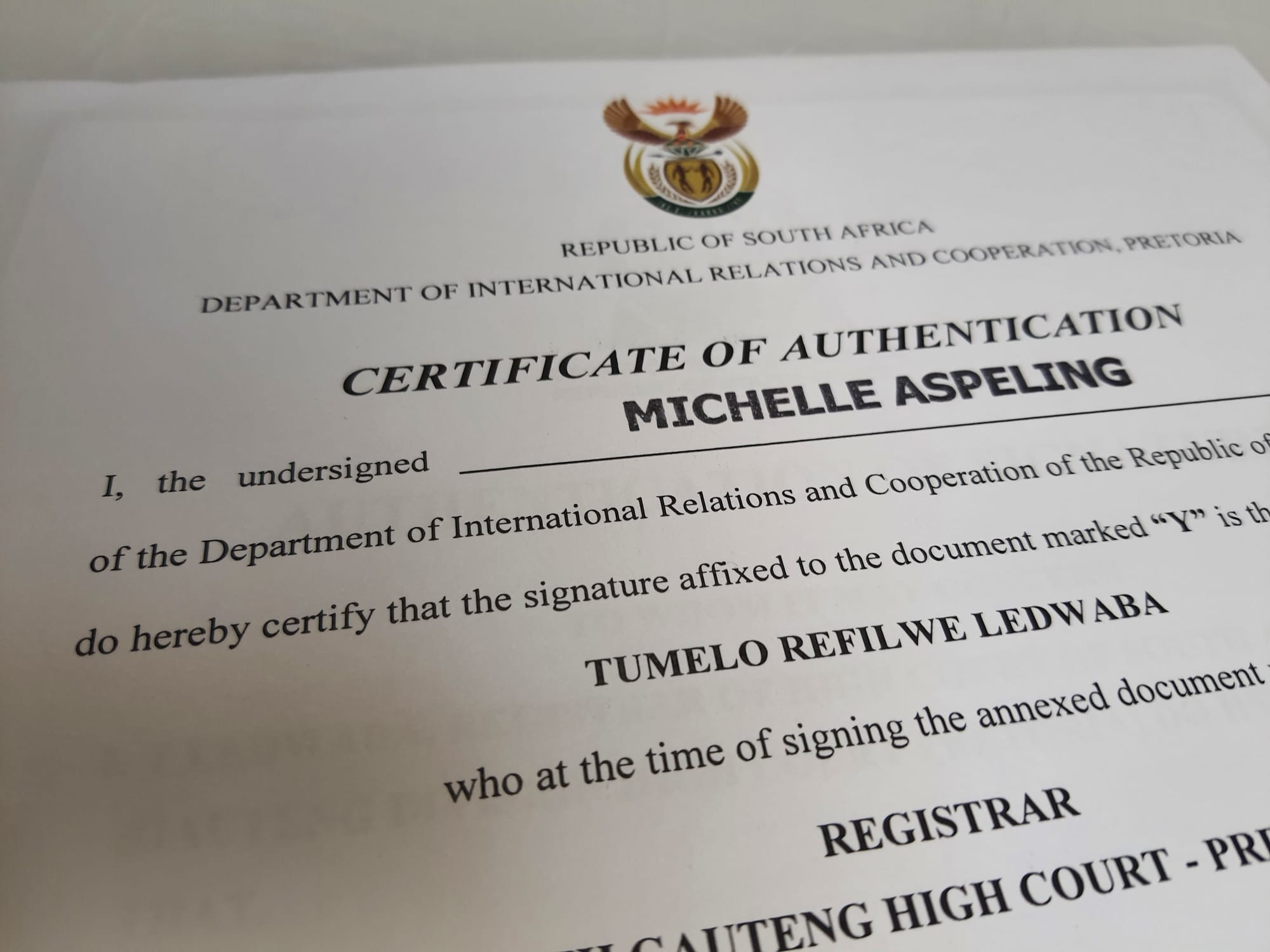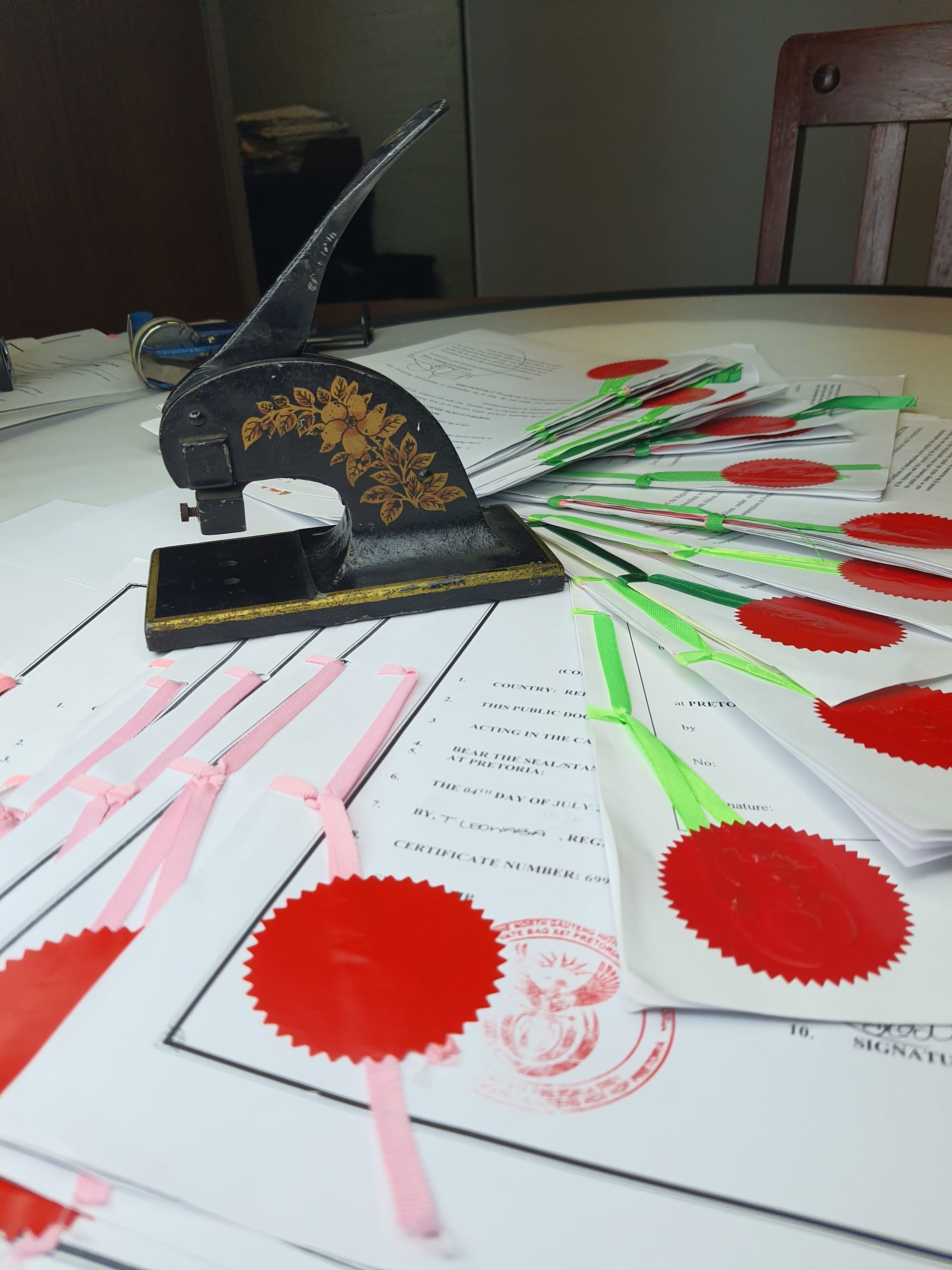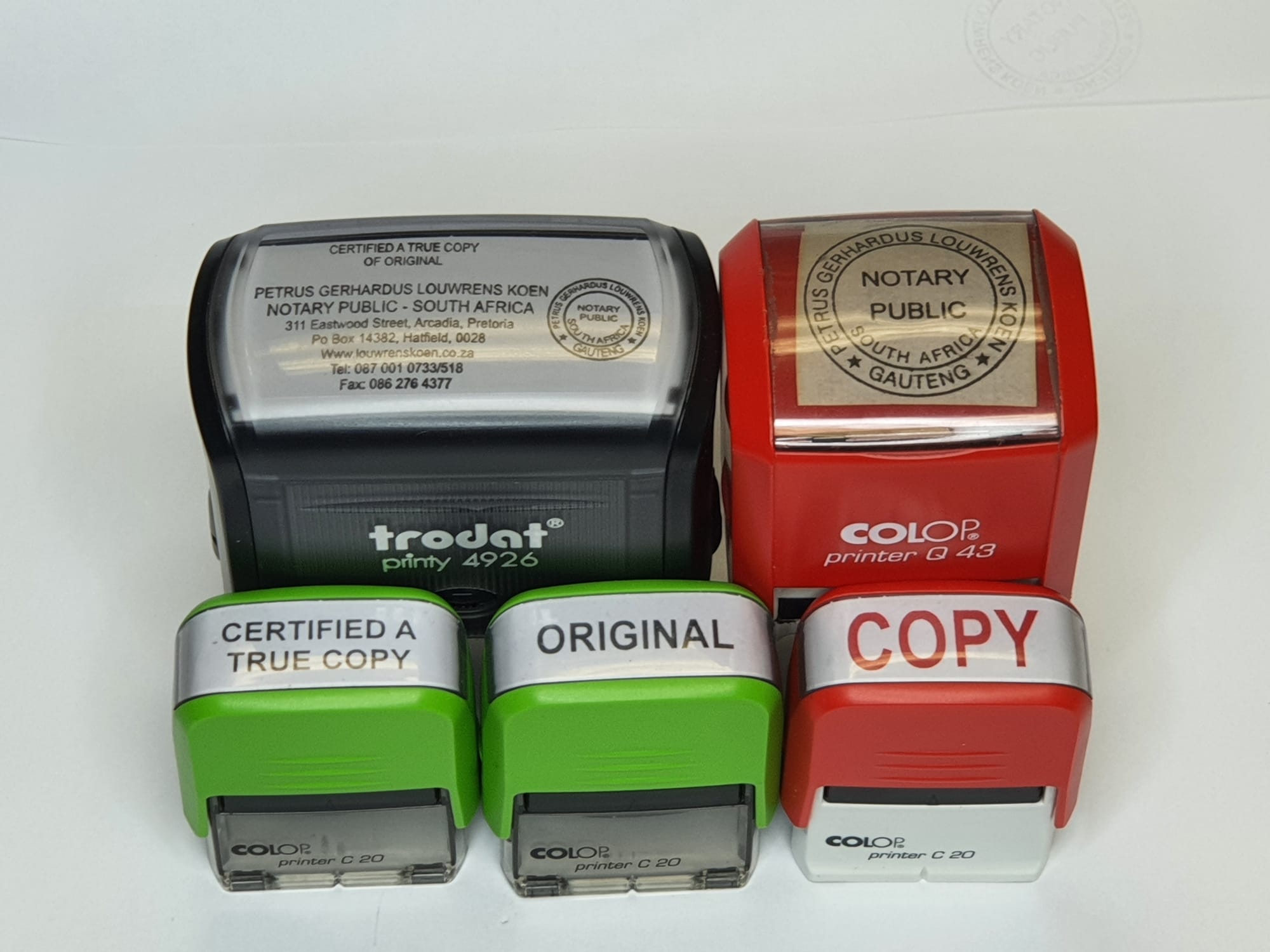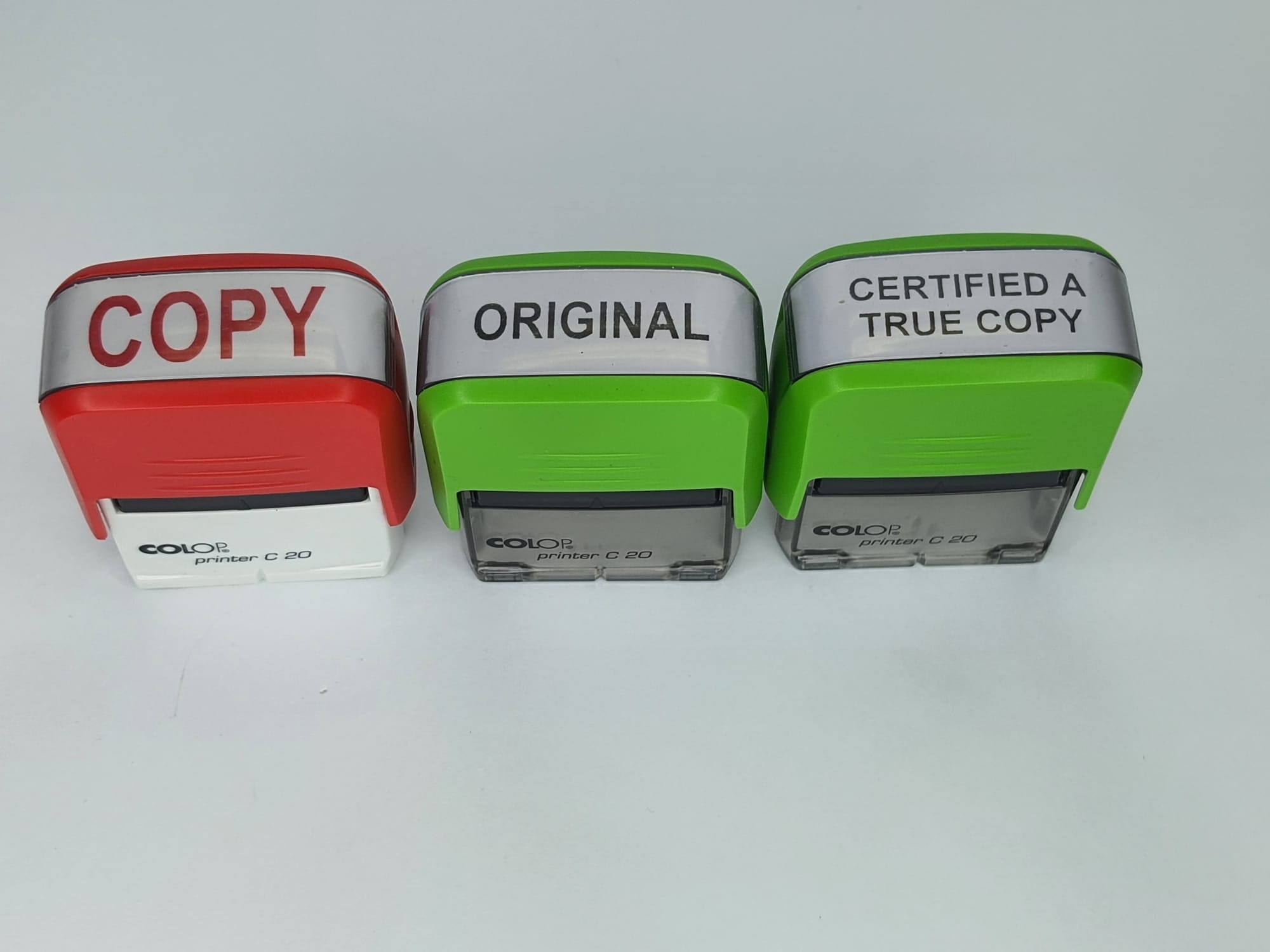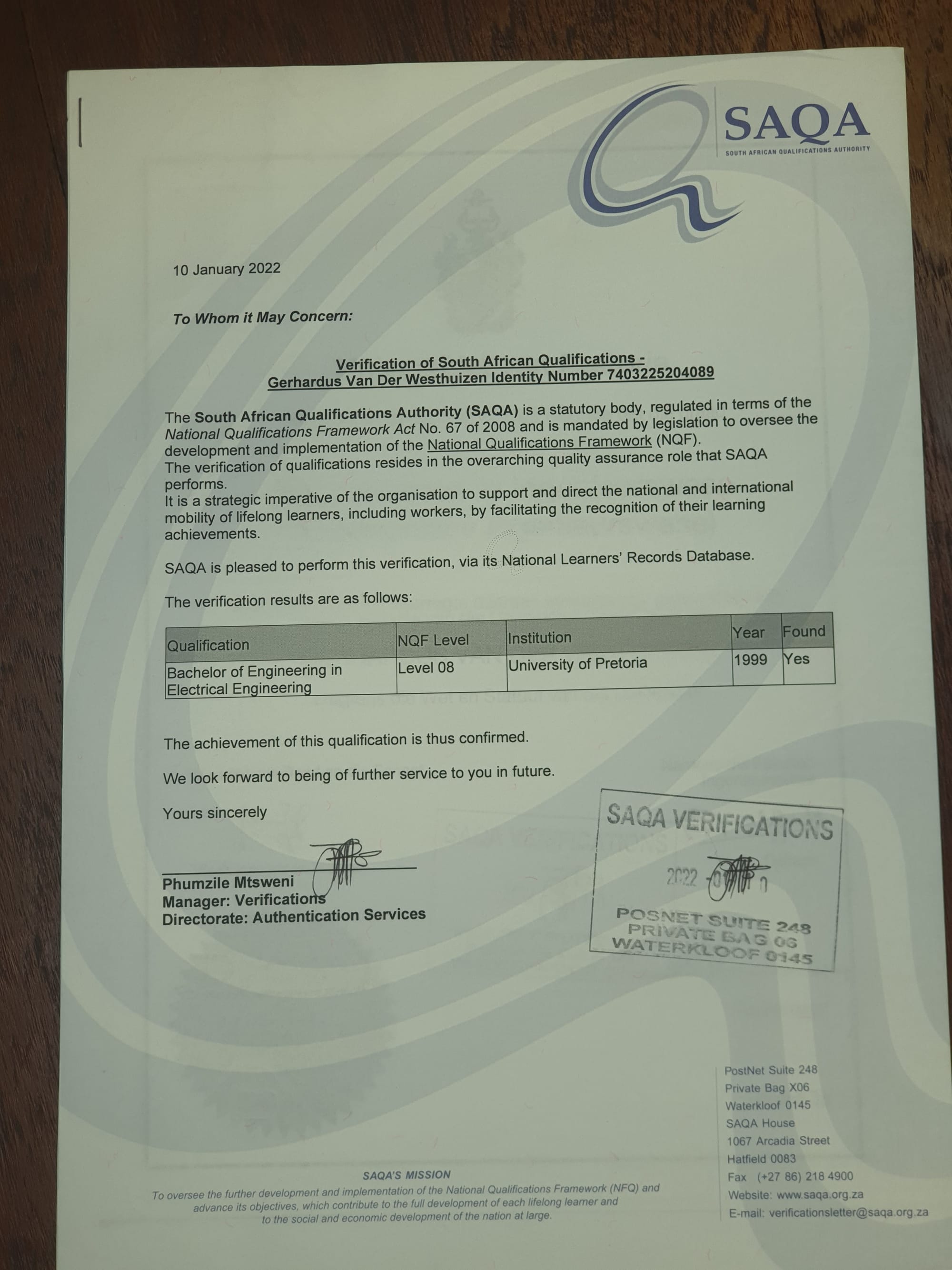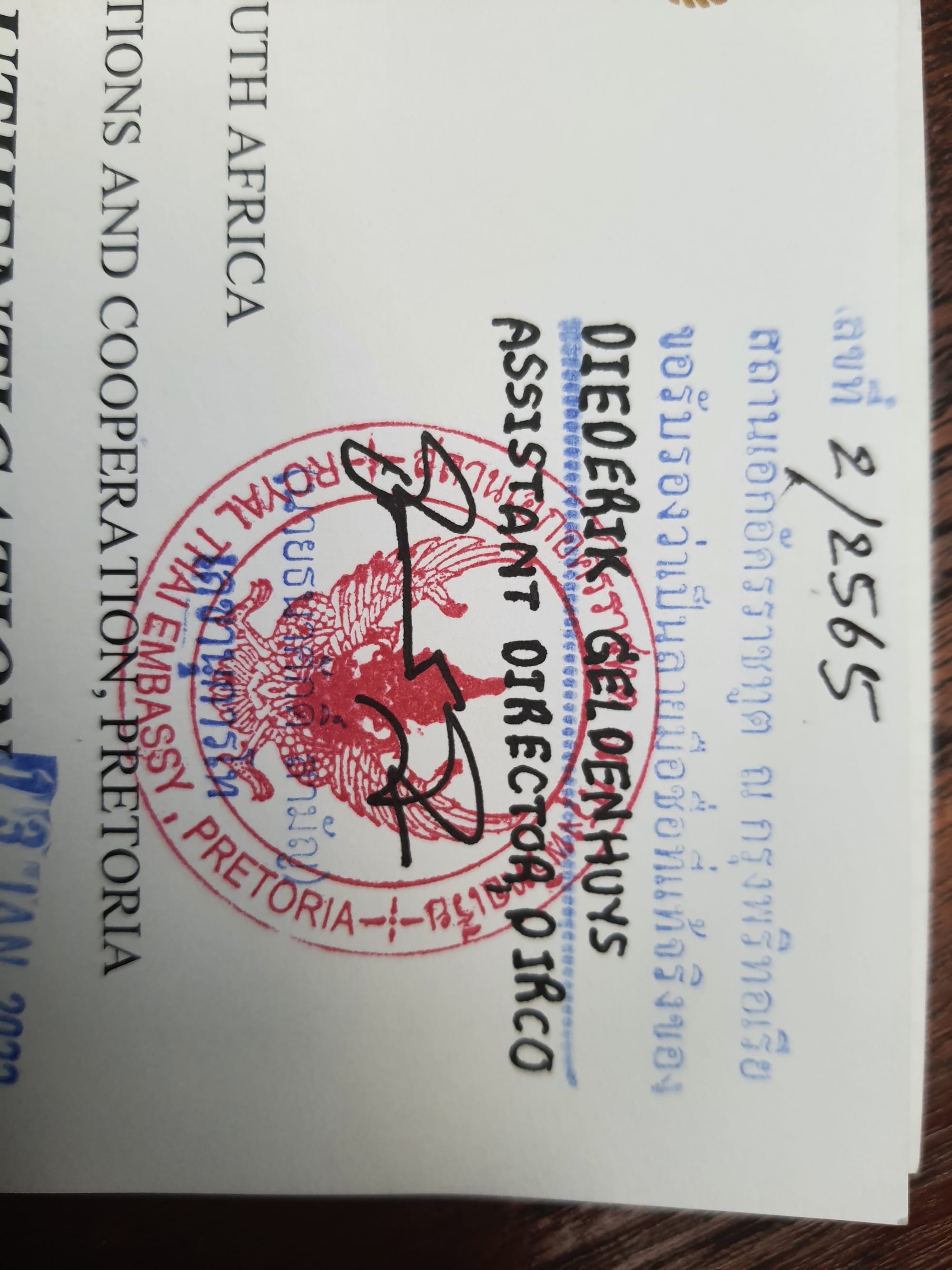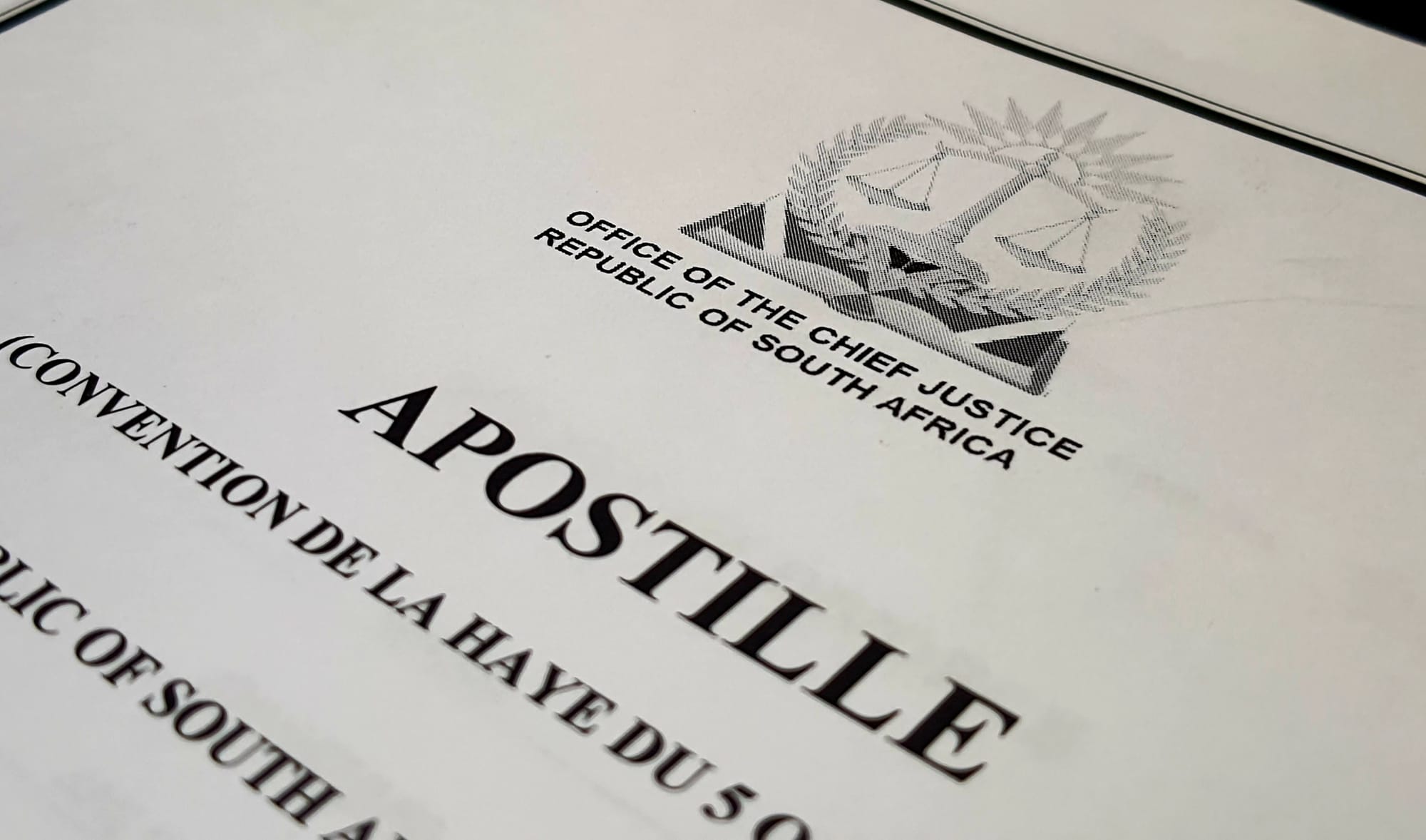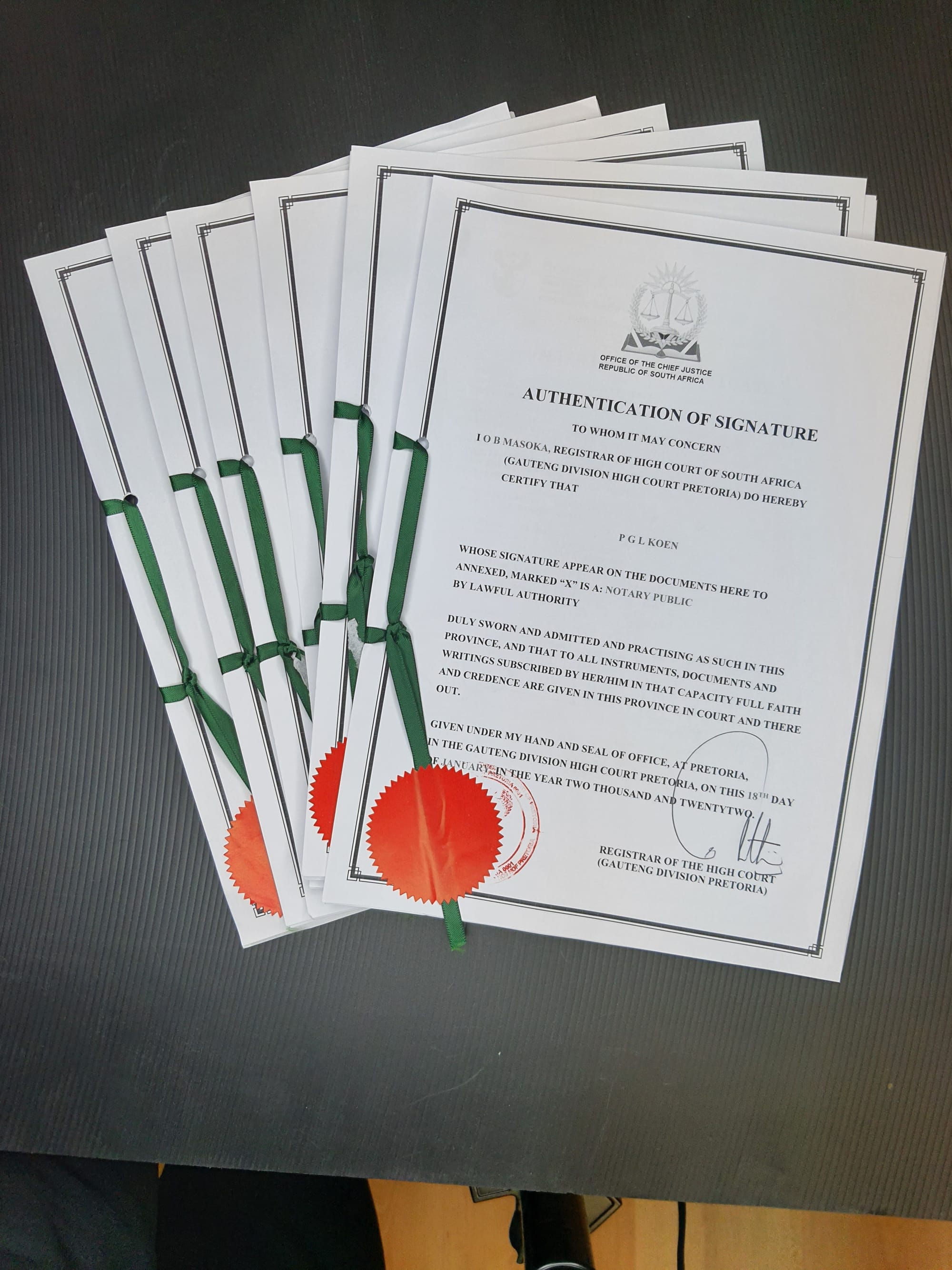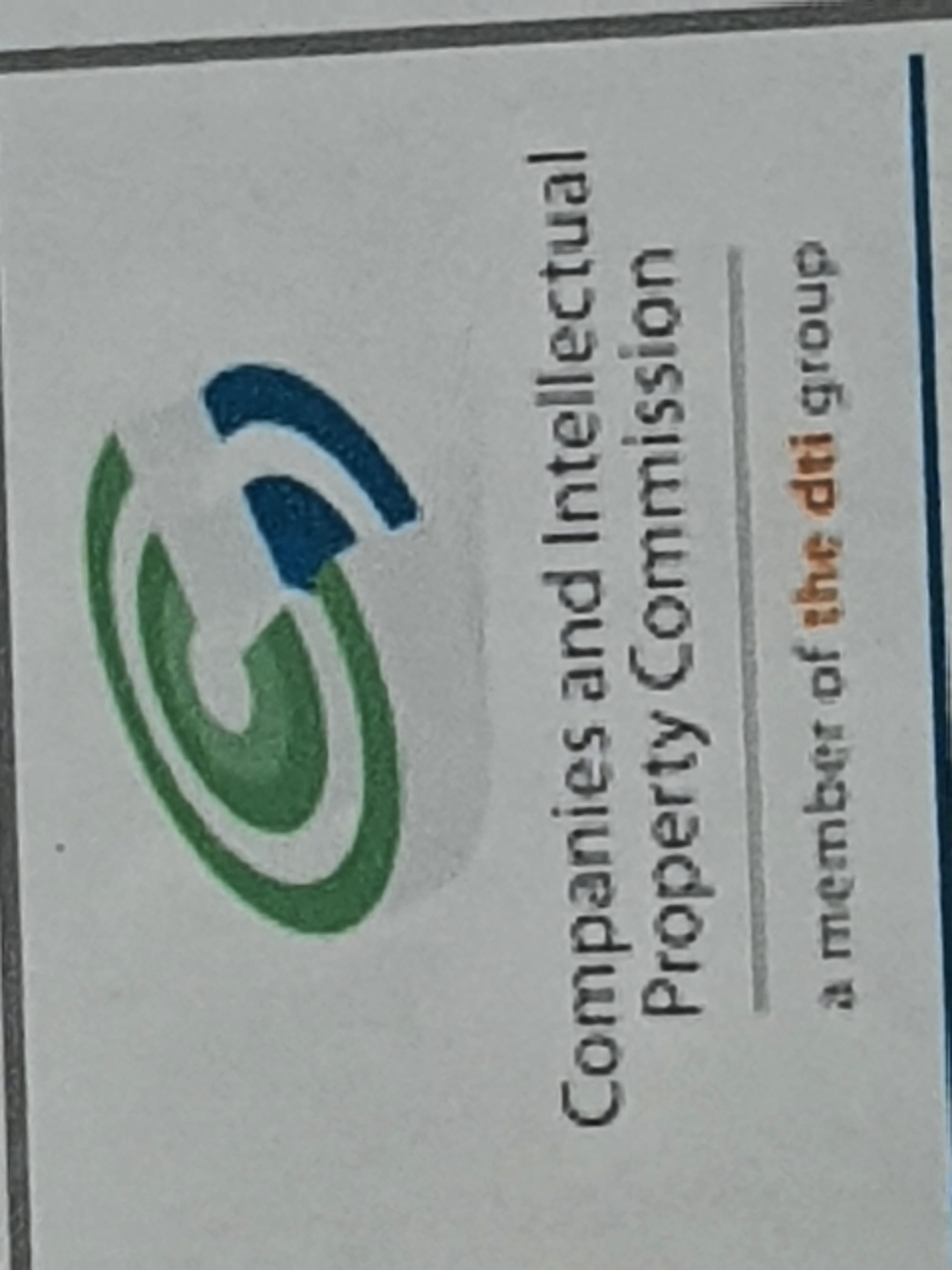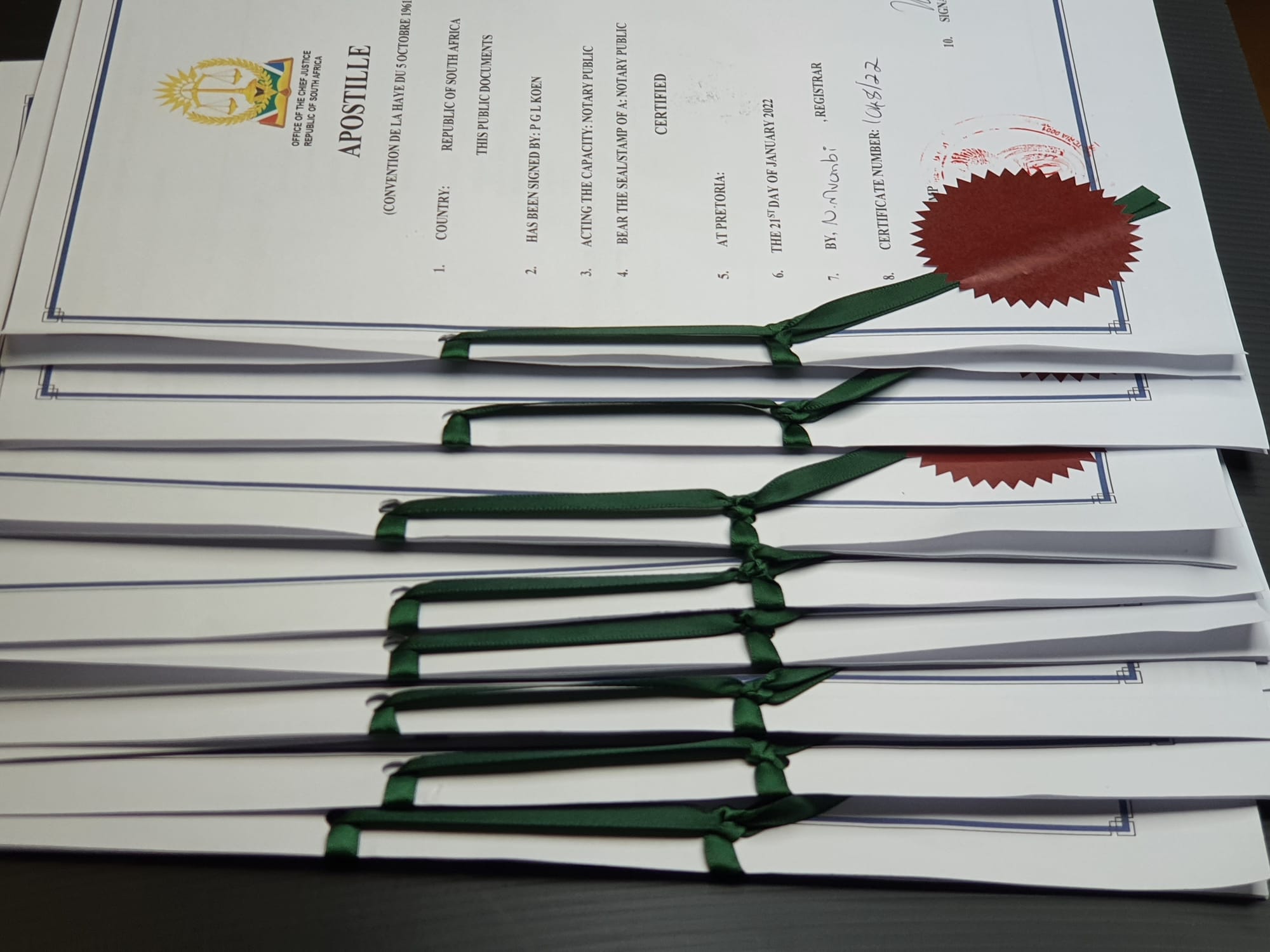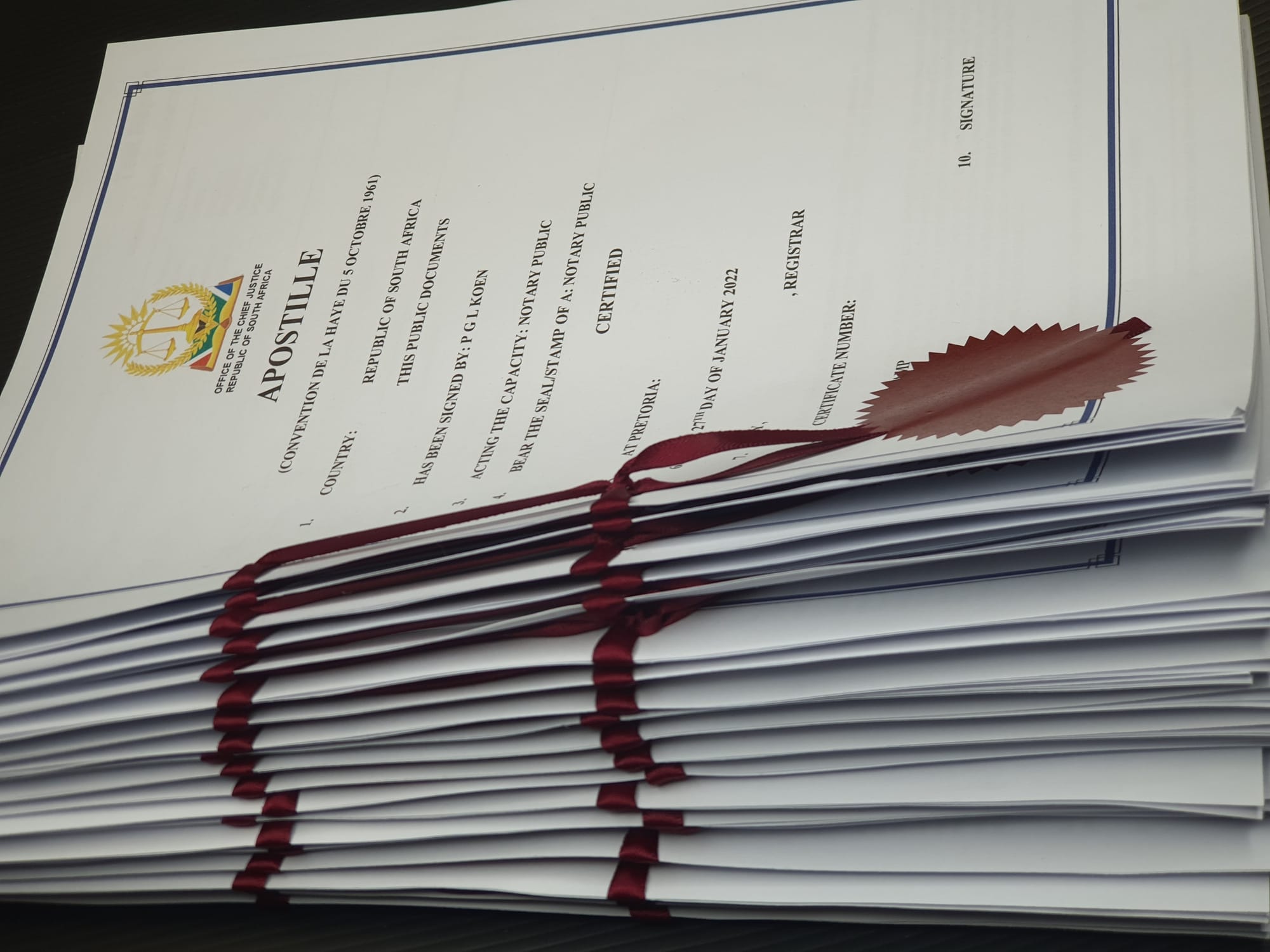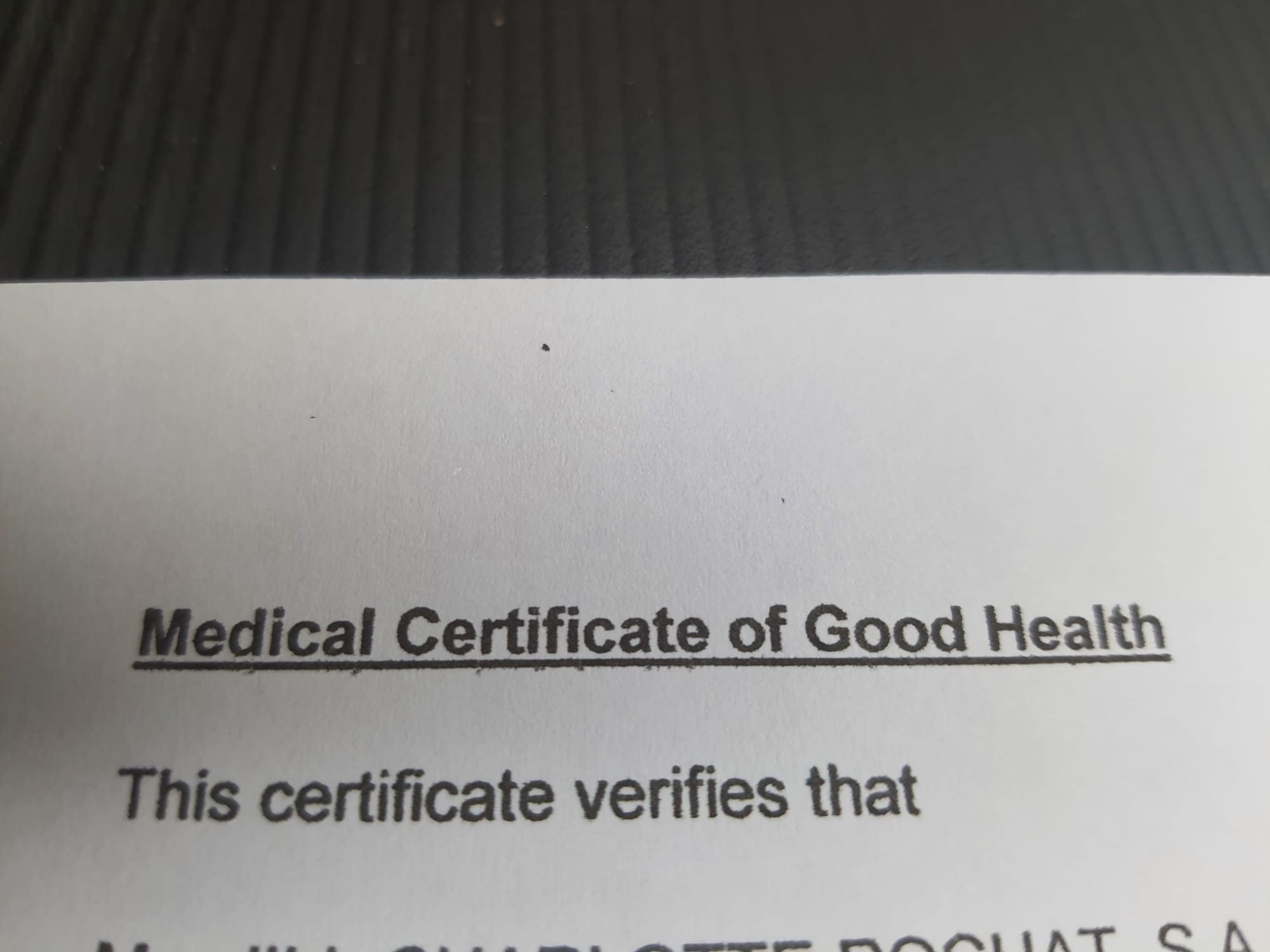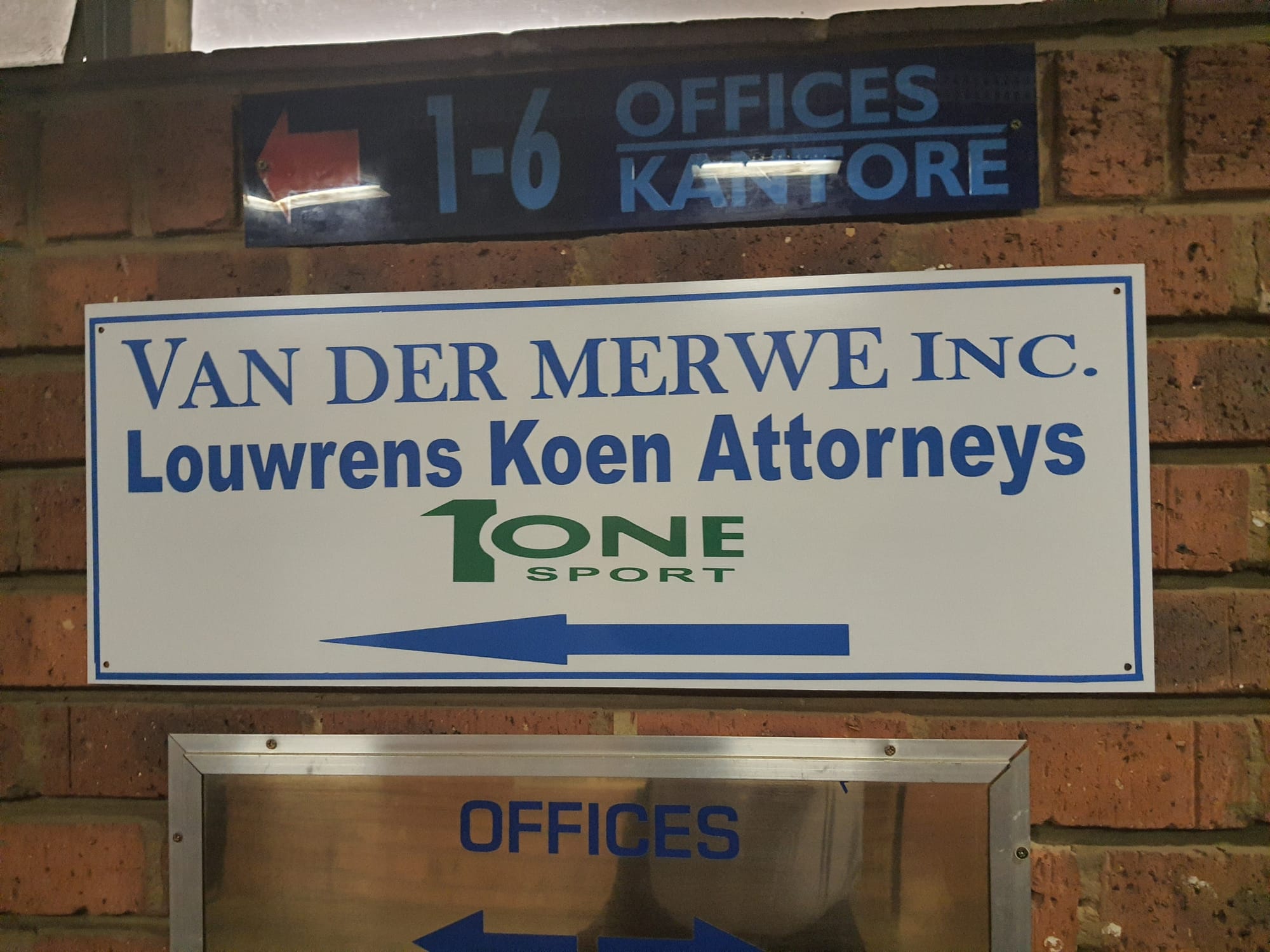About APOSTILLES - What is an Apostille?
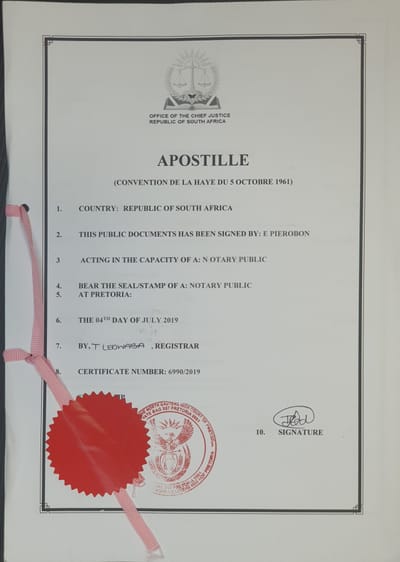
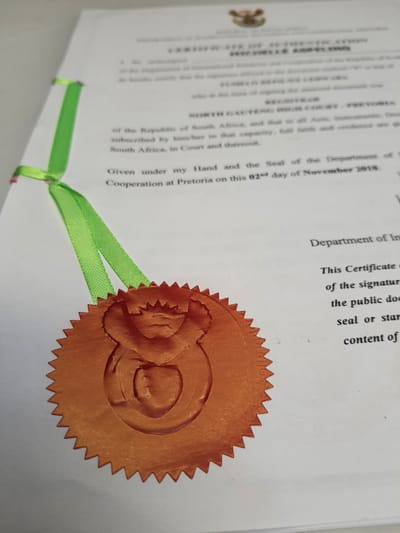
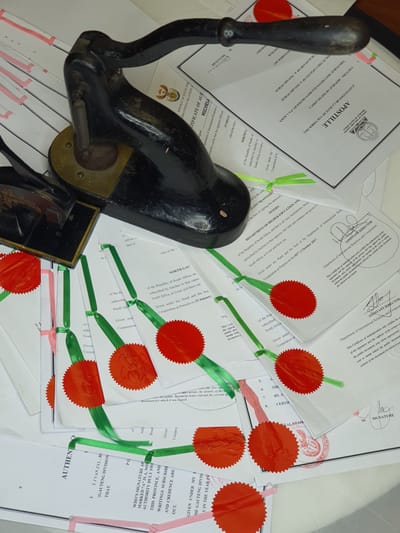
The Apostille certificate is issued in a standard format and is attached with lint, bound and sealed and stamped. This process is done in order to be able to use or present the document to be used for legal purposes in any country that is a member of the Hague Apostille Convention. In essence this is a truncated and simplified procedure to legalise documents.
The main purpose of an apostille certificate is thus to remove the need for the longer more intricate document authentication process and possible diplomatic or consular legalisation of foreign public documents.
In place of the then complex and drawn out authentication and sometimes embassy attestation process is a simple certificate issued to a specific format. This certificate being the Apostille Certificate which once attached to a document would remove the need for any further authentication or legalisation of the document when presented in another member country.
There are several countries that have not subscribed to the above Hague Apostille Convention. A more intricate document legalisation process is used in terms of High Court Rule 63.
Addition steps may be necessary to legalise these documents destined for non-Hague Apostille subscribing countries which process is called document authentication and may involve attending the local embassy or consulate of the country your document will be presented. The local embassy places an additional stamp or seal on the document. This process of placing an embassy seal on your document is called Embassy Attestation.
About the hague apostille convention

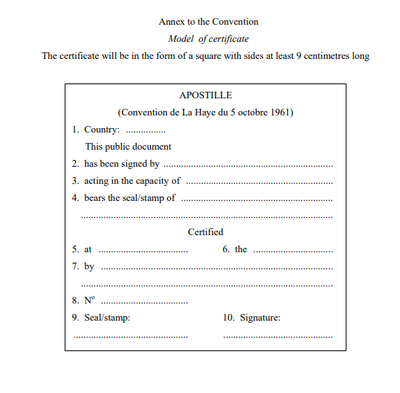
The purpose of the Convention is to abolish the traditional requirement of legalisation, replacing the often long and costly legalisation or authentication process with the issuance of a single Apostille certificate by a Competent Authority in the place where the document originates.
The Convention has over 120 Contracting Parties, and has become one of the most widely applied multilateral treaties in the area of legal cooperation, with several million Apostilles issued each year.
The purpose of this convention is thus to remove the need for diplomatic or consular legalisation of foreign public documents. In place of the then complex and drawn out authentication and sometimes embassy attestation process was to be a simple certificate issued to a specific format. This certificate being the Apostille Certificate which once attached to a document would remove the need for any further authentication or legalisation of the document when presented in another member country.
How do I get an Apostille Certificate for my documents?
Although the Apostille Certificate has greatly simplified the legalisation process the actual procedure of obtaining an Apostille does vary from one document to another. Please visit the following page for further guidance on obtaining an Apostille Certificate from Document Legalisation Services.
How does an Apostille from South-Africa look like?
Additionally, the certificate is attached using lint and a red seal and an official stamp is or embossing stamp is placed over the red seal.
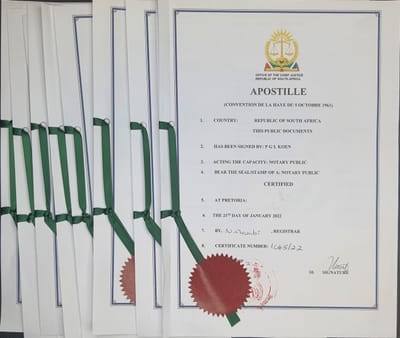
What countries have signed the Hague Apostille Convention?
A total of 118 countries have signed The Hague Apostille Convention. You can visit the HCCH website for up to date information and to view the current list of countries. South-Africa is a signatory of The Hague Apostille Convention.
The document legalisation process process for non signatory countries used to verify the signatures on official documents is called authentication. We can also assist you with the authentication and legalisation of your documents for use in another country. Contact our friendly staff to discuss how we can help. Call us at at 087 0010733 or send us an get an online quotation.
F.A.Q - APOSTILLE CERTIFICATES
Frequently asked questions regarding our Document Legalisation Services
Do you need an effective FAQ list?
Got questions that need answering?
What do you want your clients to know?
Want your clients to learn about your business?
Authorities to issue Apostille Certificates in Acceding Countries to the Hague Apostille Convention
- Albania - Competent Authority (Art. 6)
- Andorra - Competent Authority (Art. 6)
- Antigua and Barbuda - Competent Authority (Art. 6)
- Argentina - Competent Authority (Art. 6)
- Armenia - Competent Authority (Art. 6)
- Australia - Competent Authority (Art. 6)
- Austria - Competent Authority (Art. 6)
- Azerbaijan - Competent Authority (Art. 6)
- Bahamas - Competent Authority (Art. 6)
- Bahrain - Competent Authority
- Barbados - Competent Authority (Art. 6)
- Belarus - Competent Authorities (Art. 6)
- Belgium - Competent Authority (Art. 6)
- Belize - Competent Authority (Art. 6)
- Bolivia - Competent Authority (Art. 6)
- Bosnia and Herzegovina - Competent Authority (Art. 6)
- Botswana - Competent Authority (Art. 6)
- Brazil - Competent Authority (Art. 6)
- Brunei Darussalam - Competent Authority (Art. 6)
- Bulgaria - Competent Authorities (Art. 6)
- Burundi - Competent Authority (Art. 6)
- Cabo Verde - Competent Authority (Art. 6)
- Chile - Competent Authorities
- China (Hong Kong) - Competent Authorities (Art. 6)
- China (Macao) - Competent Authority (Art. 6)
- Colombia - Competent Authority (Art. 6)
- Cook Islands - Competent Authority (Art. 6)
- Costa Rica - Competent Authority
- Croatia - Competent Authority (Art. 6)
- Cyprus - Competent Authority (Art. 6)
- Czech Republic - Competent Authority (Art. 6)
- Denmark - Competent Authority (Art. 6)
- Dominica - Competent Authority (Art. 6)
- Dominican Republic - Competent Authority (Art. 6)
- Ecuador - Competent Authority (Art. 6)
- El Salvador - Competent Authority (Art. 6)
- Estonia - Competent Authorities (Art. 6)
- Eswatini - Competent Authority (Art. 6)
- Fiji - Competent Authority (Art. 6)
- Finland - Competent Authority (Art. 6)
- France - Competent Authority (Art. 6)
- Georgia - Competent Authority (Art. 6)
- Germany - Competent Authority (Art. 6)
- Greece - Competent Authority (Art. 6)
- Grenada - Competent Authority (Art. 6)
- Guatemala - Competent Authority (Art. 6)
- Guyana - Competent Authority (Art. 6)
- Honduras - Competent Authority (Art. 6)
- Hungary - Competent Authority (Art. 6)
- Iceland - Competent Authority (Art. 6)
- India - Competent Authority (Art. 6)
- Ireland - Competent Authority (Art. 6)
- Israel - Competent Authority (Art. 6)
- Italy - Competent Authority (Art. 6)
- Japan - Competent Authority (Art. 6)
- Kazakhstan - Competent Authority (Art. 6)
- Korea, Republic of - Competent Authorities (Art. 6)
- Kosovo - Competent Authority (Art. 6)
- Kyrgyzstan - Competent Authority (Art. 6)
- Latvia - Competent Authority (Art. 6)
- Lesotho - Competent Authority (Art. 6)
- Liberia - Competent Authority (Art. 6)
- Liechtenstein - Competent Authority (Art. 6)
- Lithuania - Competent Authority (Art. 6)
- Luxembourg - Competent Authority (Art. 6)
- Malawi - Competent Authority (Art. 6)
- Malta - Competent Authority (Art. 6)
- Marshall Islands - Competent Authority (Art. 6)
- Mauritius - Competent Authority (Art. 6)
- Mexico - Competent Authority (Art. 6)
- Monaco - Competent Authority (Art. 6)
- Mongolia - Competent Authority (Art. 6)
- Montenegro - Competent Authorities (Art. 6)
- Morocco - Competent Authority (Art. 6)
- Namibia - Competent Authority (Art. 6)
- Netherlands - Competent Authority (Art. 6)
- New Zealand - Competent Authority (Art. 6)
- Nicaragua - Competent Authority (Art. 6)
- Niue - Competent Authority (Art. 6)
- Norway - Competent Authority (Art. 6)
- Oman - Competent Authority
- Palau - Competent Authority (Art. 6)
- Panama - Competent Authority (Art. 6)
- Paraguay - Competent Authority (Art. 6)
- Peru - Competent Authority (Art. 6)
- Philippines - Competent Authority (Art. 6)
- Poland - Competent Authority (Art. 6)
- Portugal - Competent Authority (Art. 6)
- Republic of Moldova - Competent Authority (Art.6)
- Republic of North Macedonia - Competent Authority (Art. 6)
- Romania - Competent Authority (Art. 6)
- Russian Federation - Competent Authority (Art. 6)
- Saint Kitts and Nevis - Competent Authority (Art. 6)
- Saint Lucia - Competent Authority (Art. 6)
- Saint Vincent and the Grenadines - Competent Authority (Art. 6)
- Samoa - Competent Authority (Art. 6)
- San Marino - Competent Authority (Art. 6)
- Sao Tome and Principe - Competent Authorities
- Serbia - Competent Authority (Art. 6)
- Seychelles - Competent Authority (Art. 6)
- Slovakia - Competent Authority (Art. 6)
- Slovenia - Competent Authority (Art. 6)
- South Africa - Competent Authority (Art. 6)
- Spain - Competent Authority (Art. 6)
- Suriname - Competent Authority (Art. 6)
- Sweden - Competent Authority (Art. 6)
- Switzerland - Competent Authority (Art. 6)
- Tajikistan - Competent Authority
- Tonga - Competent Authority (Art. 6)
- Trinidad and Tobago - Competent Authority (Art. 6)
- Tunisia - Competent Authority (Art. 6)
- Turkey - Competent Authority (Art. 6)
- Ukraine - Competent Authority (Art. 6)
- United Kingdom - Competent Authority (Art. 6)
- United States of America - Competent Authority (Art. 6)
- Uruguay - Competent Authority (Art. 6)
- Uzbekistan - Competent Authorities (Art. 6)
- Vanuatu - Competent Authorities (Art. 6)
- Venezuela - Competent Authority (Art. 6)
Content Page
This is a content page where you can freely add any content such as text, images, links, etc. You can edit all of this text and replace it with what you want to write. Use the advanced editor to design this content page.
Edit your content page from the Pages tab by clicking the edit button. This is a content page where you can freely add any content such as text, images, links, etc. You can edit all of this text and replace it with what you want to write. Use the advanced editor to design this content page. Edit your content page from the Pages tab by clicking the edit button.
This is a content page where you can freely add any content such as text, images, links, etc. You can edit all of this text and replace it with what you want to write. Use the advanced editor to design this content page.
Edit your content page from the Pages tab by clicking the edit button.
This is a content page where you can freely add any content such as text, images, links, etc. You can edit all of this text and replace it with what you want to write. Use the advanced editor to design this content page.
Edit your content page from the Pages tab by clicking the edit button.
You can edit all of this text and replace it with what you want to write. Use the advanced editor to design this content page. Edit your content page from the Pages tab by clicking the edit button.
This is a content page where you can freely add any content such as text, images, links, etc.
